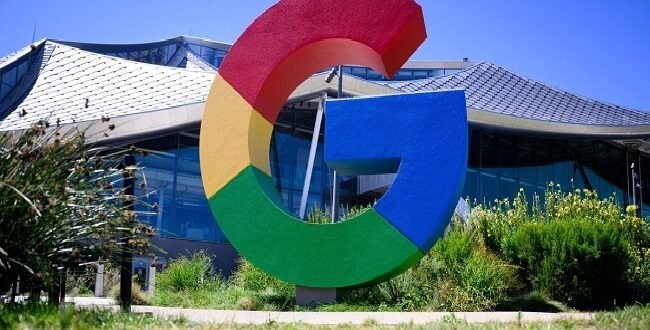05-09-2025
SAN FRANCISCO: Google has been told by a US jury to pay $425m for violating the privacy of tens of millions of users who opted out of a feature tracking app use.
The jury in San Francisco handed down the verdict on Wednesday after a group of Google users accused the tech giant of continuing to collect data from third-party apps even when they changed their account settings to prevent the practice.
 Google said the decision misunderstood how its products work and that it planned to appeal.
Google said the decision misunderstood how its products work and that it planned to appeal.
“Our privacy tools give people control over their data, and when they turn off personalization, we honor that choice,” Google spokesperson Jose Castaneda said in a statement.
In their lawsuit, the plaintiffs alleged that Google collected and sold users’ mobile app activity data in breach of privacy assurances contained in its Web & App Activity settings.
The suit, which was filed in July 2020, covered some 98 million Google users.
During the trial, Google had argued that collected data was “non-personal” and “pseudonymous” and stored in “segregated, secured, and encrypted locations”.
Google has faced a number of other recent privacy-related lawsuits.
In May, the tech giant agreed to pay $1.375bn to the state of Texas over claims it had collected residents’ face geometry and voiceprints without proper consent, and tracked users’ locations even when they opted out of the feature.
‘Google has illegal advertising monopoly’
A US judge has ruled tech giant Google has a monopoly in online advertising technology.
The US Department of Justice, along with 17 US states, sued Google, arguing the tech giant was illegally dominating the technology which determines which adverts should be placed online and where.
 This is the second antitrust case Google has lost in a year, after it was ruled the company also had a monopoly on online search.
This is the second antitrust case Google has lost in a year, after it was ruled the company also had a monopoly on online search.
Google said it would appeal against the decision.
“Publishers have many options and they choose Google because our ad tech tools are simple, affordable and effective,” the firm’s head of regulatory affairs Lee-Ann Mulholland said.
US District Judge Leonie Brinkema said in the ruling Google had “willfully engaged in a series of anticompetitive acts” which enabled it to “acquire and maintain monopoly power” in the market.
“This exclusionary conduct substantially harmed Google’s publisher customers, the competitive process and ultimately, consumers of information on the open web,” she said. Google lost on two counts, while a third was dismissed.
“We won half of this case and we will appeal the other half,” Mulholland said.
“The court found that our advertiser tools and our acquisitions, such as DoubleClick, don’t harm competition.”
The ruling is a significant win for US antitrust enforcers, according to Laura Phillips-Sawyer, a professor at the University of Georgia School of Law.
“It signals that not only are agencies willing to prosecute but also that judges are willing to enforce the law against big tech firms,” she said.
She said the verdict sets an important legal precedent and is likely to affect decision-making in corporate America.
Google’s lawyers had argued the case focused too much on its past activities, and prosecutors ignored other large ad tech providers such as Amazon. (Int’l News Desk)
 Pressmediaofindia
Pressmediaofindia




